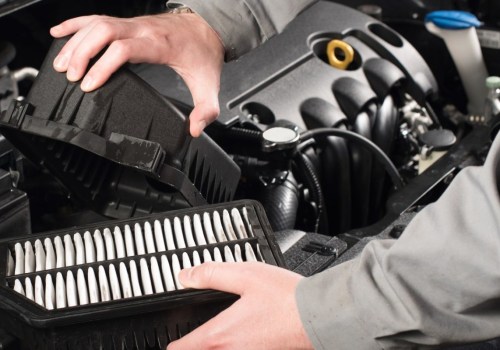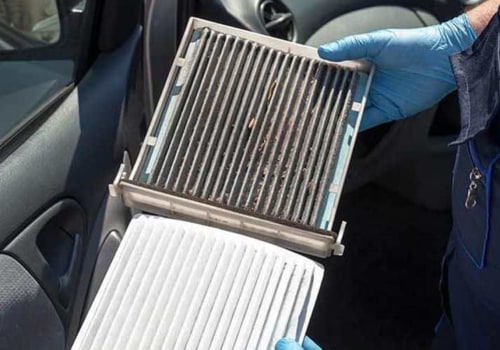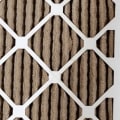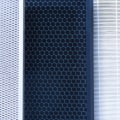What Is the Difference Between a Furnace Filter and an Air Filter? Simplifying AC Filter Sizes for Improved Air Quality
When considering home air quality, differences between a furnace filter and an air filter often go unnoticed. Both serve important purposes within HVAC systems, yet their roles and upkeep vary significantly. Understanding common AC filter sizes, such as 16x20 or 20x25 inches, can greatly affect efficiency and the air quality we breathe. Choosing the wrong filter or skipping maintenance might lead to serious consequences that could surprise many.
Keeping filters clean and selecting appropriate sizes ensures optimal performance of heating and cooling systems. Neglecting this aspect may result in reduced airflow and increased energy bills. Additionally, poor air quality can contribute to health issues for everyone in the household. So, investing time in understanding these components pays off in the long run.
Key Takeaways
While air filters aid air conditioning systems to improve indoor air quality, furnace filters target heating systems.
Whereas air filters seek to filter allergens and fine particles, furnace filters concentrate on gathering dust and trash.
Sizes of filters vary, with common dimensions like 16x20, 20x20, 16x25, and 20x25 inches impacting airflow and system performance.
From 1 to 16, MERV ratings show how well filters absorb particles; higher ratings trap more allergens but could impede airflow if not appropriate for HVAC systems.
Frequent maintenance combined with timely filter replacements enhances air quality, reduces allergies, and increases energy efficiency—all of which help to lessen power expenditures.
Understanding Furnace Filters
When considering home heating, many people overlook furnace filters' importance. These components play a crucial role in maintaining heating systems' efficiency while prolonging lifespans. Several types exist, including fiberglass, pleated, and HEPA filters. Each type offers different filtration levels and airflow, making it essential to select one that suits specific requirements.
Understanding how often to replace filters is critical for optimal performance. While pleated models may last up to 90 days, ordinary fiberglass filters should be changed every 30 days generally. Homes with pets or people with allergies could call for more frequent changes to guarantee better air.
A dirty or blocked filter limits airflow, which drives furnaces to run harder and raises energy costs. Timeliness of replacements combined with regular maintenance improves indoor air quality and lowers expensive repair risk.
Paying attention to furnace filters helps create a more comfortable living environment while ensuring heating systems operate efficiently. Don't overlook this essential component; doing so could save money and improve air quality long-term.
Understanding Air Filters
Understanding air filters proves vital for maintaining a healthy indoor atmosphere. Such filters significantly improve air quality by capturing dust, allergens, and various airborne particles.
Learning about different filter types supports informed choices regarding HVAC systems. Consider these three crucial points:
Types of Filters: Numerous air filter types exist, such as HEPA, pleated, and fiberglass. Each possesses distinct features and efficiency levels, influencing their pollutant capture abilities.
MERV Ratings: Minimum Efficiency Reporting Value (MERV) indicates filter effectiveness. Higher MERV ratings signify superior filtration, yet selecting a filter compatible with your system is essential to prevent airflow problems.
Regular Replacement: For optimal air quality, replace air filters consistently, typically every one to three months. Clogged filters can lower efficiency and result in increased energy costs.
Key Differences Between Filters
Air filters and furnace filters may appear similar, but they've different functions and characteristics. Primary differences lie in design and purpose.
Made especially for heating systems, furnace filters gather dust and trash to guard machinery and guarantee effective operation. In contrast, air filters operate in air conditioning systems with an eye toward enhancing indoor air quality by removing allergens and pollutants.
Another significant difference involves the materials used for each type. Furnace filters often consist of thicker, denser materials to manage high airflow in heating systems, while air filters typically utilize lighter materials aimed at enhancing air quality.
This leads to filter ratings, which measure effectiveness in capturing particles. Generally, furnace filters have lower MERV (Minimum Efficiency Reporting Value) ratings compared to air filters, engineered to trap smaller particles like pollen and pet dander.
Recognizing these differences aids in choosing the right filter for specific systems, ensuring both furnace performance and indoor air quality remain effective.
Importance of Filter Maintenance
Maintaining your filters is crucial for several reasons.
Regular maintenance not only boosts your health by improving air quality, but it also saves you money in the long run by preventing costly repairs.
Plus, a well-maintained system operates more efficiently, ensuring you get the best performance from your heating and cooling systems.
Health Benefits of Maintenance
Regular checks and replacements of furnaces and air filters can significantly improve indoor air quality and boost overall health.
The benefits of consistent maintenance routines are numerous. Here are three key advantages:
Fewer Allergens: Clean filters capture dust, pollen, and pet dander, reducing allergens in the home. This is crucial for individuals suffering from asthma or allergies.
Better Respiratory Health: Keeping filters maintained prevents harmful particles like mold spores and bacteria from circulating in living spaces. This leads to improved lung function and overall respiratory wellness.
Greater Comfort: A system in good condition operates efficiently, ensuring consistent temperatures and effective humidity control, resulting in a more pleasant environment.
Cost Savings Over Time
Regular filter maintenance improves health while leading to considerable cost savings over time. Regularly changing or cleaning furnaces and air filters increases their lifetime, so saving money over time.
By running more effectively, clean filters let HVAC systems reduce the energy required for heating or cooling houses. Time and money spent on filter maintenance helps prevent more energy-related costs like system repairs.
Clogged filters cause heating and cooling systems to work harder, which increases wear and tear that may limit their lifetime. This situation not only increases utility expenses but may also result in expensive repairs or replacements.
Moreover, keeping filters helps to lower service calls since a well-maintained system is less prone to faults. Over the years, maintaining awareness of filter lifespan and giving maintenance first priority results in major savings.
Ultimately, caring for filters serves as a straightforward yet effective strategy to safeguard finances and HVAC systems.
Improved System Efficiency
Neglecting filter maintenance causes HVAC systems to struggle, preventing peak performance. Over time, this leads to higher energy costs and shorter system life.
Here are three main advantages of regular filter upkeep:
Improved Airflow: Clean filters ensure unrestricted airflow, helping the system to operate efficiently.
Energy Efficiency: A well-maintained system consumes less power, resulting in reduced utility expenses. Routine filter changes can enhance system efficiency by as much as 15%.
Increased Longevity: Proper filter care minimizes wear on HVAC components, extending overall system life.
Incorporating routine filter checks into maintenance schedules optimizes system efficiency while improving air quality in homes.
Clogged filters force systems to work harder, risking potential breakdowns. Prioritizing filter maintenance not only saves energy but also enhances system longevity, allowing HVAC units to run smoothly for many years.
Make checking and replacing filters regularly a habit to enjoy these essential benefits.
Common AC Filter Sizes
Finding the right size for AC filters is crucial in maintaining system efficiency. When selecting a filter, knowing common dimensions available on the market is essential.
Most household air conditioning systems contain filters that commonly measure 16x20, 20x20, 16x25, and 20x25 inches, although other measurements exist as well. These measurements indicate filter length and width, ensuring a correct fit that promotes optimal airflow and performance.
In addition to size, standard filter ratings, such as MERV (Minimum Efficiency Reporting Value), hold significant importance. Higher MERV ratings indicate improved filtering performance, so gathering more allergens and particles from indoor air.
MERV ratings on filters range from 1 to 16; many home solutions lie between 8 and 12.
Understanding common AC filter sizes along with their ratings aids in making informed choices for HVAC systems. Regularly checking and replacing filters ensures healthy air quality while allowing systems to operate efficiently, extending lifespan and reducing energy costs.
Understanding the difference between a furnace filter vs air filter makes maintaining your HVAC system much easier. Furnace filters protect the heating system, while air filters cover both heating and cooling needs. Finding the right filter size may seem tricky, but it plays a huge role in improving air quality. We at Filterbuy help simplify the process with our wide selection of sizes and types. Replacing filters on schedule keeps your system running efficiently and ensures cleaner air for your home. Whether you’re focusing on your furnace or AC, choosing the right filter doesn’t have to feel like a chore.
Frequently Asked Questions
Can I Use a Furnace Filter in My Air Conditioning Unit?
Using a furnace filter in an AC unit is not advisable without checking compatibility with the furnace. Various systems need specific filters for best efficiency, so choosing the wrong type could lower air quality and system performance.
How Often Should I Replace My Furnace or Air Filter?
Replace filters every one to three months based on lifespan and maintenance schedule. Regular checks support air quality and system efficiency, keeping homes comfortable and healthy.
What Filters Are Best for Allergies and Asthma?
For relief from allergies and asthma, choose HEPA filters. These devices capture tiny particles effectively, enhancing indoor air quality. Regular checks and replacements help maintain a safe environment for easy breathing.
Are Washable Filters Effective Compared to Disposable Ones?
Washable filters can prove effective, but performance relies heavily on maintenance. Regular cleaning ensures good function. However, disposable filters typically capture more particles and offer easier replacement when necessary.
Do Different Climates Affect Filter Types and Maintenance Needs?
Different climates impact filter types as well as maintenance needs. Humid regions demand filters that resist mold growth, while dry areas require effective dust capture. Adapting filters to specific conditions enhances efficiency and improves overall air quality.
Learn more about HVAC Care from one of our HVAC solutions branches…
Filterbuy HVAC Solutions - Miami FL - Air Conditioning Service
1300 S Miami Ave Apt 4806 Miami FL 33130
(305) 306-5027
https://maps.app.goo.gl/Ci1vrL596LhvXKU79






